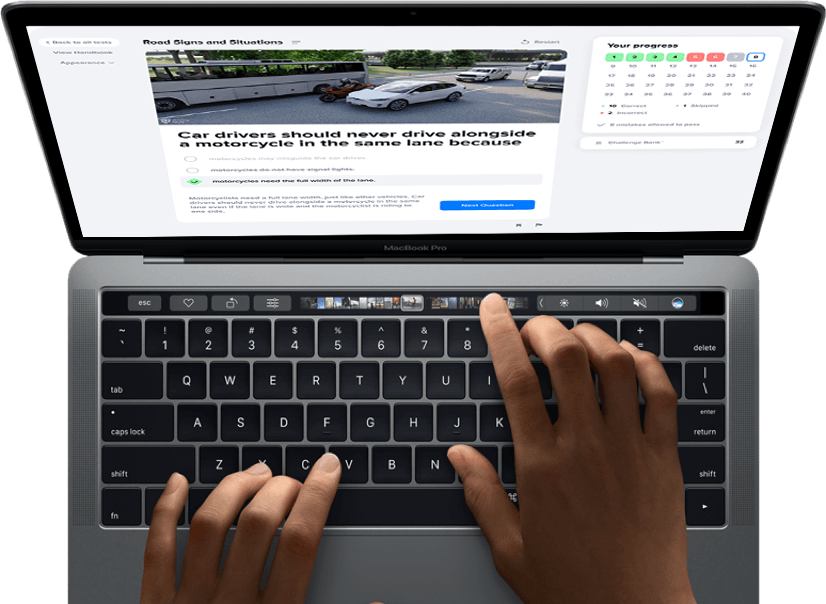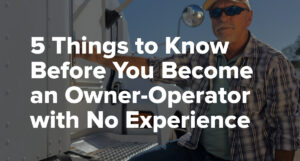What is an Owner-Operator?
An owner-operator is a business owner who personally manages daily operations, common in various industries such as logistics, healthcare, and franchising. This role often involves hands-on involvement in all aspects of the company. In trucking, an owner-operator (also known as a "truck owner-operator" or "OTR trucker") is a truck driver who leases or owns their own truck. Owner-operators are responsible for all aspects of their business, including finding their own loads, arranging their own financing, and maintaining their truck.
Becoming a successful truck owner-operator in 2025 will require a mix of business acumen, industry knowledge, and a strong work ethic. To start, truck owner-operators will need to have a keen understanding of the trucking industry and the trends that are shaping it. They will need to be proactive in their marketing and networking efforts, and they will need to build a reputation as a reliable and trustworthy provider of trucking services. In addition, truck owner-operators will need to invest in the latest trucking technology and stay up-to-date on the latest industry regulations. They will also need to maintain a high level of customer service and keep their trucks well-maintained.
By following these tips, truck owner-operators can set themselves up for success in 2025 and beyond.
10 Steps to Become a Successful Owner-Operator
- 1
Get your CDL
If you don’t have one already, you need a commercial driver’s license (CDL) to become an owner-operator. All owner-operators must have one. The CDL (Class A, B, or C) allows the driver to operate any legal combination of vehicles, including a tractor-trailer. How to get a CDL license and obtain all required endorsements for it. Check out these CDL federal requirements and free CDL practice tests for your state here.
- 2
Form a business
You need to form a legitimate business in order to become an owner-operator and apply for your USDOT Number. This can be done by filing the necessary paperwork with your state or local government. Once you have formed your business, you will also need to get a business license and insurance.
- 3
File for USDOT number
All commercial motor vehicles (CMVs) that operate interstate must be registered with the Federal Motor Carrier Safety Administration (FMCSA) and must have a USDOT number. You can apply for your USDOT number online through the FMCSA website.
- 4
Get your trucking authority
After you have obtained your USDOT number, you will need to get your Motor Carrier (MC) Number (often referred to as "trucking authority") from the FMCSA. You can apply for your trucking authority online through the FMCSA website. You’ll need both a USDOT number and an MC number to operate legally.
- 5
Purchase truck insurance
Insurance is a must for any business, but it is especially important for owner-operators. You need to make sure you are covered in case of an accident or other unforeseen event. All CMVs that operate interstate must be insured. You can contact an insurance broker to help you find the right policy for your needs.
- 6
Lease or purchase a truck
You will need to either lease or purchase a truck that meets the requirements set forth by the FMCSA. Not all trucks are created equal. You need to do your research to find the right truck for you and your business. Consider things like fuel efficiency, maintenance costs, and payload capacity when making your decision. The truck must be equipped with the proper safety equipment, such as brakes, lights, and mirrors.
- 7
Stay compliant with DOT regulations
It is important to stay up-to-date on all DOT regulations. The DOT website is a good resource for information on regulations. You will need to comply with regulations regarding hours of service, vehicle maintenance, and driver qualifications.
- 8
Hire qualified drivers
If you plan on hiring drivers to help you operate your truck, you will need to make sure they are qualified. All drivers must have a valid CDL and meet the DOT’s medical requirements.
- 9
Keep your truck in good condition
You will need to keep your truck in good condition and perform regular maintenance. This includes checking the oil, tires, and brakes. You should also keep a log of all maintenance and repairs.
- q
Stay organized and keep good records
As an owner-operator, you are responsible for everything related to your truck. This means you need to keep track of maintenance, paperwork, and other details. Staying organized will help you keep your business running smoothly.
- w
Bonus tip: Build a good reputation
Your reputation is everything as an owner-operator. Even if you've recently become an owner-operator and have zero experience, make sure you always deliver on your promises and provide quality service. This will help you attract and retain customers.
![How to Become a Successful Truck Owner-Operator in 2025 [10 Steps]](https://driving-tests.org/wp-content/uploads/2022/04/owner-operator-truck.jpg)




